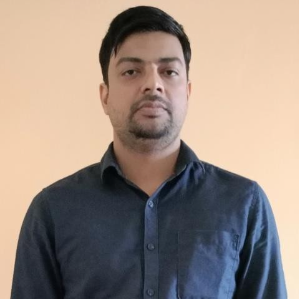Title : Neck node status in squamous cell carcinoma of the tongue
Abstract:
Introduction:
Squamous cell carcinoma (SCC) of the tongue is one of the most common oral cavity cancers, accounting for 30 to 50% of all oral carcinomas. Carcinoma of the tongue is treated mainly by surgery followed by adjuvant therapy, depending upon the stage (early and advanced) and histopathological characteristics. The purpose of this study was to evaluate the neck node status and surgical management of squamous cell carcinoma of the tongue.
Methodology:
52 histopathologically proven cases of squamous cell carcinoma of the tongue were included in present study. Recurrent cases and prior treatment of tongue cancer by chemotherapy and radiotherapy were excluded. All the patients involved in the study underwent tumor resection with neck dissection. Results: A total of 52 patients were staged as per TNM criteria (AJCC 8th edition). 51.92% patients were pathologically node-negative (pN0). In pathologically node-positive (pN+) patients N2 Category was the highest followed by N1 Category and N3 Category. The percentage of T1, T2, T3 and T4 lesions were 13.46, 48.07, 28.85 and 09.62% respectively. The lymph node positivity was maximum in T4 followed by T3 and T2. Final histopathological stage grouping revealed early stage (stage I and II) disease in 18 patients and advanced stage (stage III and IV) disease in 34 patients. 15, 33 and 4 patients were treated by surgery alone, surgery with postoperative radiotherapy and surgery with postoperative CTRT respectively.
Conclusion:
This study concluded that 48.07% of the patients were pathologically node-positive (pN+) and nearly 08% of the patients were pathologically node-positive with extranodal extension (pN+/ENE+). Majority of the patients had diagnosed in advanced stage of carcinoma. Histopathology reports demonstrated the most of the patients had welldifferentiated squamous cell carcinoma. Stage I and II (Early stage) patients were treated mainly by surgery alone and stage III and IV (advanced stage) patients were treated with combination therapy.
Audience Take Away Notes
- The aim of this presentation is to spread awareness about patterns of neck metastasis
- The risk of nodal metastasis increases in relation to the location of the primary tumor as one progresses from the anterior to the posterior aspect of the upper aerodigestive tract. In general, the T stage usually reflects tumor burden and therefore the risk of nodal metastasis increases with increasing T stage of the primary tumor at any site. Certain histomorphological features of the primary tumor also increase the risk of nodal metastasis
- The aim of this presentation is to spread awareness and knowledge about management of the neck. Tongue cancers are treated primarily by surgery followed by adjuvant therapy, depending upon the stage and histopathological characteristics



